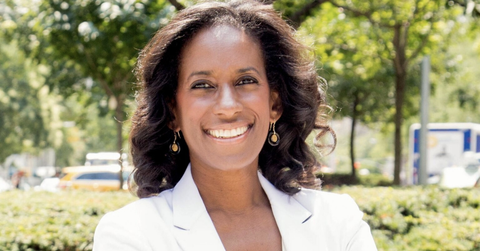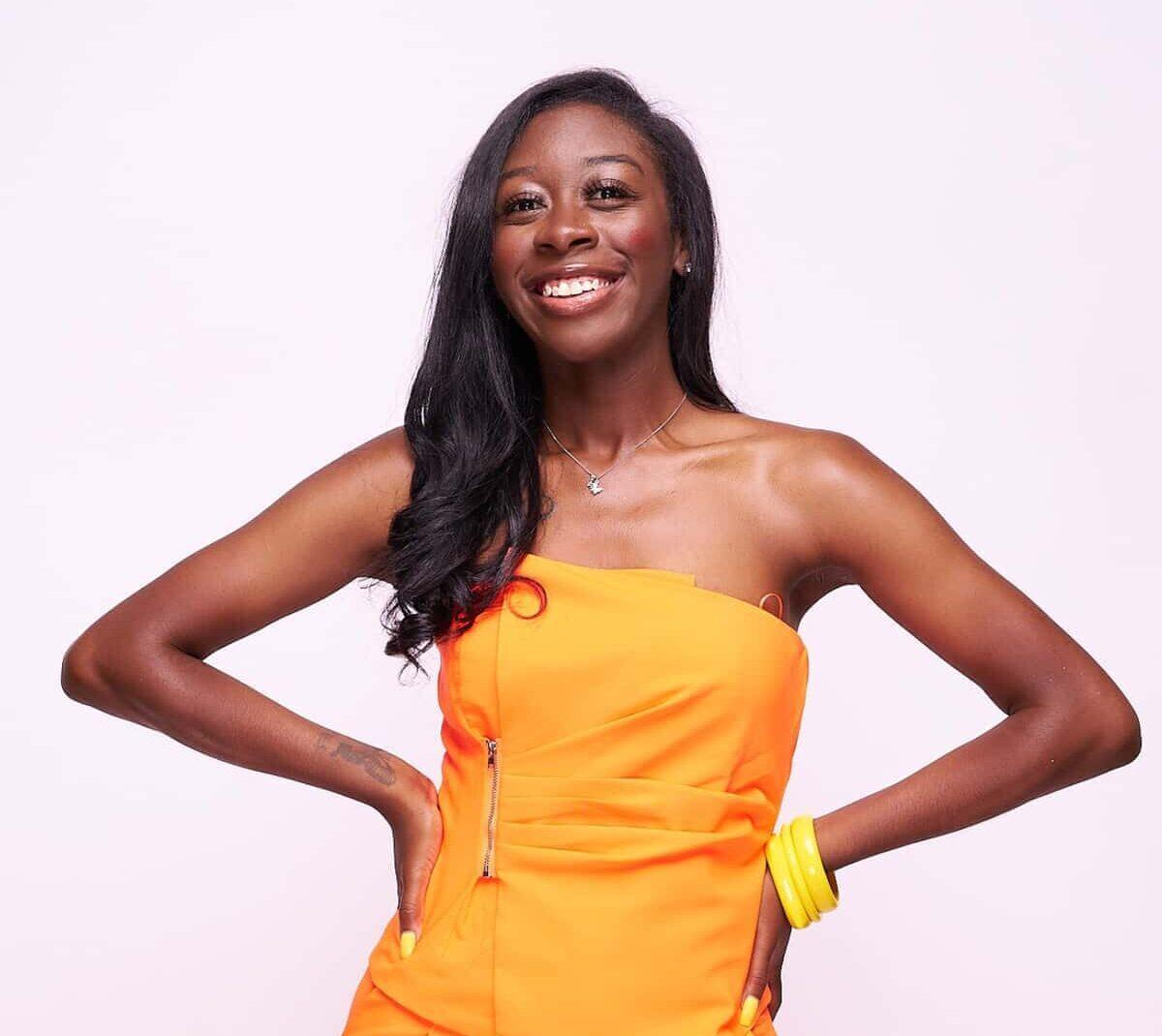Binta Niambi Brown knew what she wanted to be from a young age, which fostered the clarity of understanding that guided her in carving her own unexpected non-linear path. From becoming a partner at a top global law firm to managing Grammy-winning artists and advising some of the top people in the entertainment industry, she’s built a nontraditional career combining multiple industries.
An Entertainment Partner at Manatt, Phelps & Phillips, she brings more than two decades of experience spanning corporate law, music, sports, and media. Before entering the entertainment world, she began her career at Cravath, Swaine & Moore LLP and later became a partner at Kirkland & Ellis LLP, where she advised global media companies. Over the course of her career, Binta has advised on more than $100 billion in transactions. Early in her career, she was often the only woman, and often the only Black person, at the table. Instead of shrinking, she built her confidence through focus and consistency, and she’s not shy about sharing what goes into that.
After years of structuring billion-dollar deals, Binta founded omalilly projects, a management, development, and production company representing music artists, authors, and creative. She also served as Head of Operations and Strategy at Keep Cool/RCA Records and helped lead Chance the Rapper’s recorded music and publishing business.
She is also active in creating space to generate equity in the industry beyond her immediate roles. She is a founding co-chair of the Black Music Action Coalition (BMAC), and serves on the Barnard College of Columbia University Board of Trustees, America Media Board of Trustees, Finance Council at Parish of St. Vincent Ferrer and St. Catherine of Siena in New York, as well as on Law360’s Sports & Betting Editorial Board. Binta is also on the faculty at the Clive Davis Institute of Recorded Music at NYU Tisch School of the Arts. Her past board memberships include serving on the American Theatre Wing, Chicago Shakespeare Theatre and Merit School of Music. She is also a Life Member of the Council on Foreign Relations.
Despite the variety of industries in her career, discipline is the throughline of her journey. In our conversation, Binta reflects on preparation as the key to progress and shares advice on navigating spaces where you may be ‘the only one.’
Her Agenda: You’ve had a career that spans corporate law, talent management, and entertainment leadership fields, where women, and especially women of color, are still underrepresented. How have you learned to navigate spaces where you might be the only one at the table, and what do you wish more women knew about showing up with influence in those rooms?
Binta Niambi Brown: The thing that I want all women to know is to be really clear on why we’re doing what we’re doing, and to be really clear on what our intentions are, because the clearer we are on our intentions and the clearer we are on our purpose, the more likely that is to buoy us when the going gets rough, and the more likely it is to be our guide in general.
Nothing in life is guaranteed, and regardless of what platform we’re pursuing, regardless of what kind of career we’re pursuing, there’s always going to be challenges, and there’s a lot of really great and instructive guidance that can come both from the world of sport as well as the world of entertainment, especially when you’re talking about artists and athletes who are operating at absolutely elite levels. There’s nothing to say that they’re going to necessarily win the race. There’s nothing to say that they’re going to become a best-selling author, or that they’re going to become a top artist, but for people who are disciplined and who are focused and who are intentional about their work, and for people who don’t quit, and for people who don’t get obsessed with what everybody else is doing, what everybody else is saying, the chances go up exponentially.
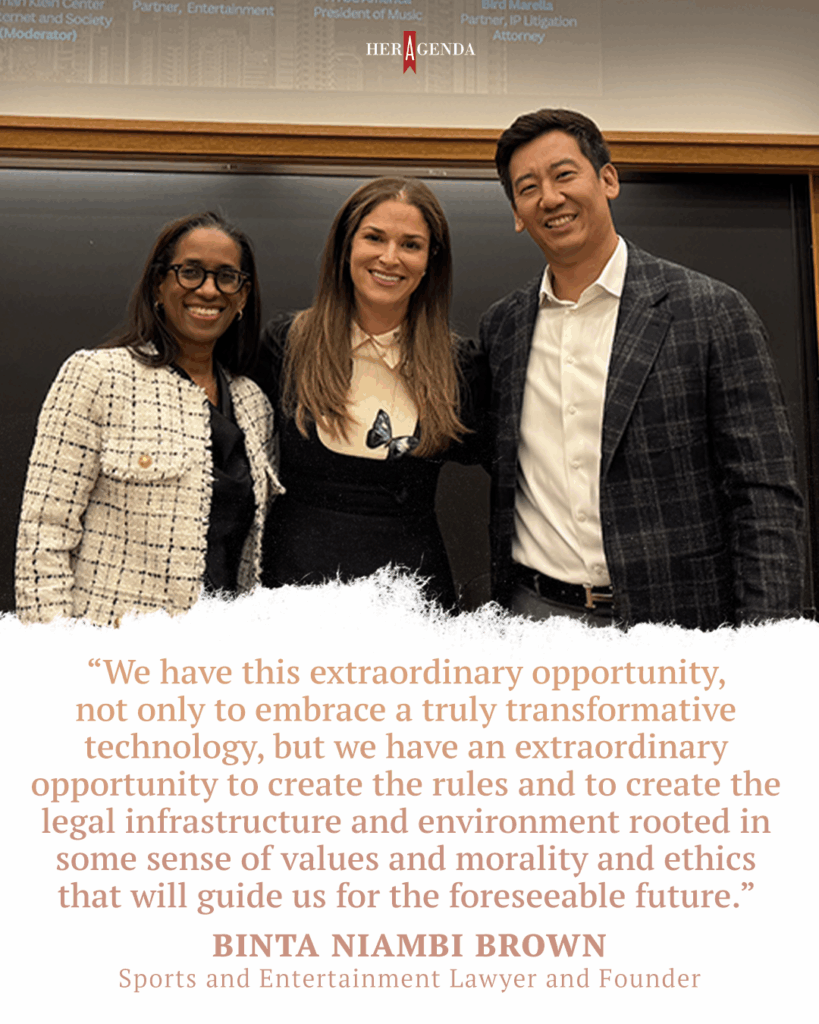
And the other aspect of that is preparation. The more we prepare ourselves, the more organized and disciplined we are in our approach, the more we keep focusing on improvement every day and learning from ourselves, the more we can engage in practices of humility as opposed to pride or egotism. Sometimes people don’t think that they’re being egotistical, [but they] absolutely are. Like, I find that a lot of us who think of ourselves and can think of ourselves as coming from backgrounds where the world is against us, so to speak, because of our perceptions of history or actual history, I find that there can be a lot of egotism in that response, and we have to be very careful about the danger of egotism.
So, it’s preparation, it’s discipline, it’s self-belief, it’s self-confidence, and then, in my own case, it has a lot to do with my faith, and what my faith gives me day in, day out, as I prepare and think about everything that I’m trying to accomplish, because this is all a challenge for everybody.
As I’m thinking about this, and I’m talking to you, there’s something else that I think gets in a lot of our way, which is that [when] we look at something, and we think that it’s hard, or that the cards are stacked against us, and we focus on how hard something is, it will only ever be hard. But if we start to focus instead on why we’re doing what we’re doing, and the idea of serving others, and picking ourselves up, and walking in purpose, then we are more likely to be successful, and to find success. It means getting up every day, and going at it anew, and refusing to give up, refusing to be defined by our failures, or our mistakes, refusing to be defined by whether the people say or think about us, but instead having the humility to study, to learn, to keep going after each failure, to use each failure as a guide point, to use each failure as an opportunity, and to not become obsessed with why we can’t, but to instead be obsessed with why we will, and why we can.
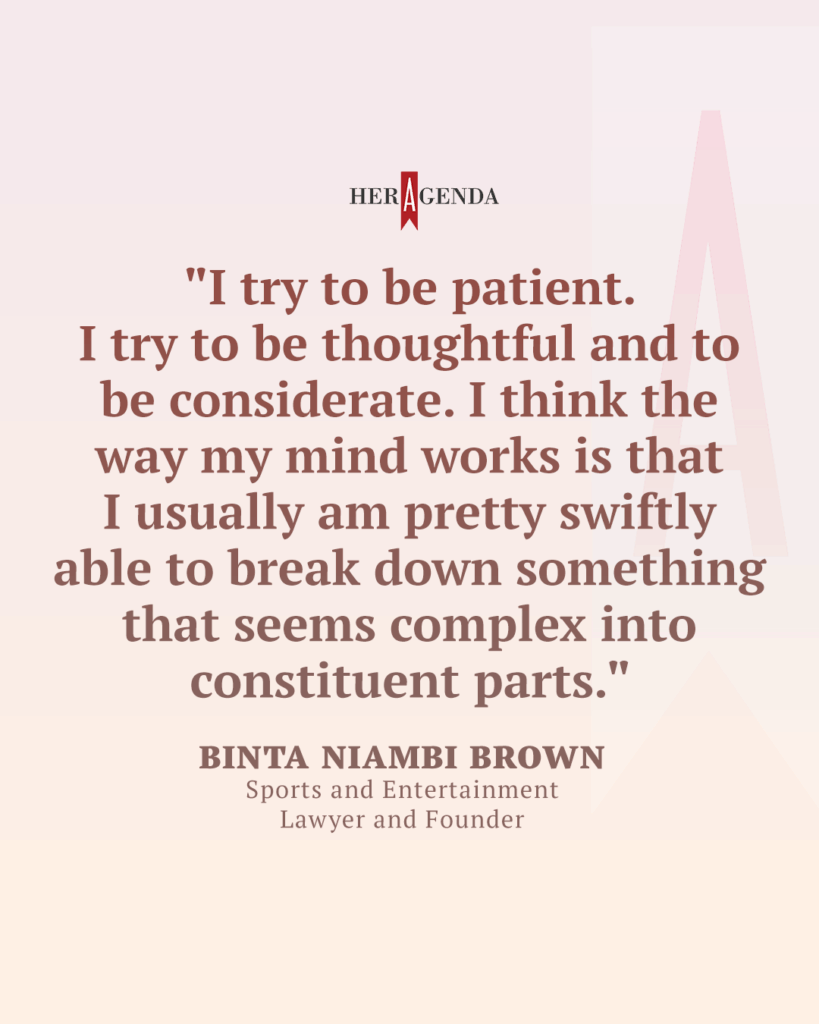
Her Agenda:For young women aspiring to become leaders in law, music, or media, what mindset or strategies have been most pivotal to your success?
Binta Niambi Brown: I’d like to think this is borrowing from some popular science today, or popular psychology, but I have a bit of a growth mindset, and I look at the world, and I look at opportunities, and my mindset is more why not, than I can’t. Maybe I’m sometimes guilty of being too optimistic, and so that’s where the discipline has to come in, and the planning, and the strategy really need to come in, and come together. That’s certainly a danger for me, is that I tend to be relentlessly optimistic, and I think that everything is possible. I feel like if I do the work, and I do everything that is within my power to affect the outcome that I desire, I’m confident that if it’s meant for me, then it will be. That’s how I’ve tried to guide, and to lead my life from the time I was a teenager through now.
I’ve certainly had moments in my life where I’ve been less certain, or less secure, [like] when my father passed away seven years ago. My confidence broke completely because so much of my confidence was rooted, I didn’t realize, in his faith, in his belief in me, and it took me a while to remember all of his sage advice, and also to continue to listen to my mother’s advice, who fortunately is still with us, and to be able to move past that. But when my father was very ill and then when he passed, and I was in that period of mourning, it was extremely difficult for me so, there are going to be moments in our lives where we have to give ourselves grace, and we have to give ourselves time to grieve, and to rebuild, and to reheal, but in healing, and grieving, we have to also have a sense of hope, and a sense of what’s possible.
I referenced that only because nobody’s life is perfect, and even people who give the appearance of being tremendously successful go through moments that are excruciating for them, and some people are very public about them, which I don’t necessarily endorse for a variety of different reasons, especially in the current environment, and some people they try to bury them. The middle ground is knowing when to ask others for help, and having the confidence that others will help you, and the humility to ask for help in the first place.
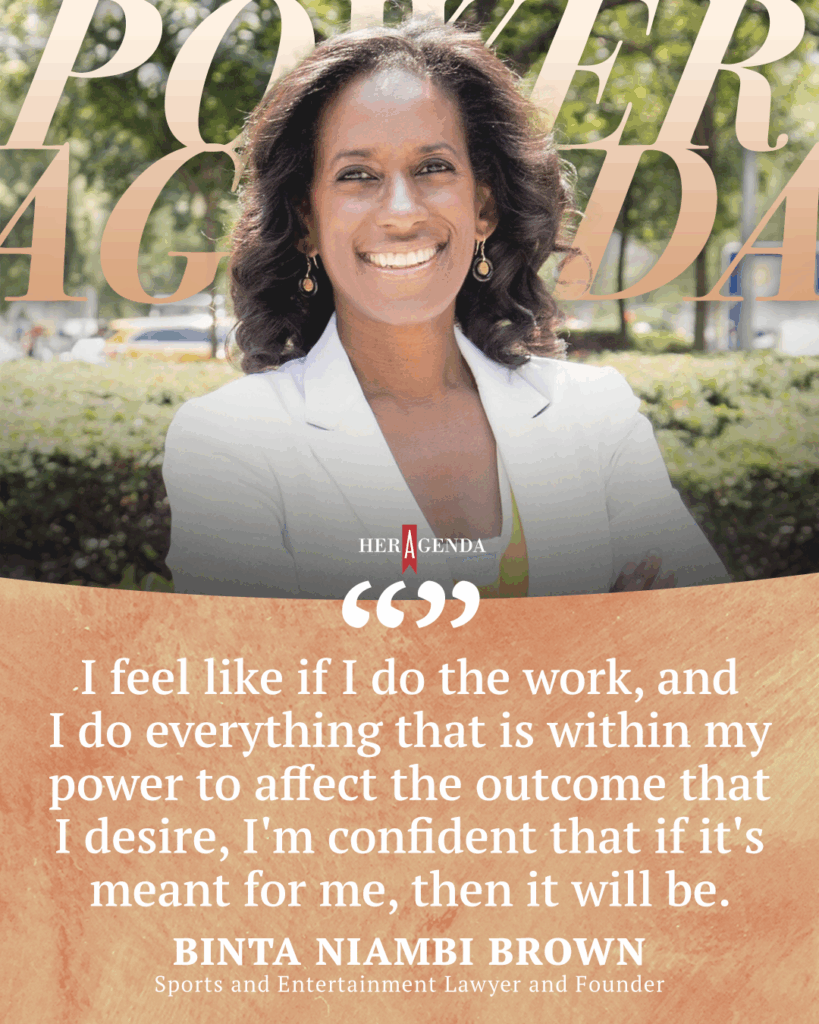
Her Agenda: You’ve worked at the intersection of entertainment, tech, and law, even writing your college thesis on the early impact of the internet. What excites you most about where music and media innovation are heading, and where do you see the biggest opportunities for creators to build and protect their work?
Binta Niambi Brown: The internet is still very exciting to me. Artificial intelligence is extremely interesting to me, but the reason why it’s interesting to me is different than the internet was interesting to me 30 years ago. The reason why artificial intelligence is interesting to me is because there are a variety of legal and ethical and moral implications that I think we are compelled to think about and it’s the wild wild west. We have this extraordinary opportunity, not only to embrace a truly transformative technology, but we have an extraordinary opportunity to create the rules and to create the legal infrastructure and environment rooted in some sense of values and morality and ethics that will guide us for the foreseeable future. And that was one of the things that compelled me to return more truly to law practice from my entrepreneurial adventures, that I saw the world changing and I thought this is an incredible opportunity to have a voice in how things are structured and also to make sure that it’s structured in a way that is inclusive of a particular set of values that are grounded in the historic time old values. Since the beginning of time, whether you’re looking at what the Greeks or what the Eastern philosophy or the major religions, I believe that to some degree share something in common in terms of what they say about how we should treat one another and about human dignity. So I find that to be an incredibly inspiring opportunity.
I’m also really excited by what’s happening in college sports. There are a lot of people who are afraid and wary of the changes in college sports, but again, this is an opportunity for us to create the rules and the infrastructure and the standards that are going to guide us for the foreseeable future. While at the same time, putting in systems into place that are going to protect people, that are going to enable them to continue to generate substantial wealth that can be helpful for them and their families. At the same time, celebrating the importance of the college part of being a college athlete or the student part of being a student athlete.
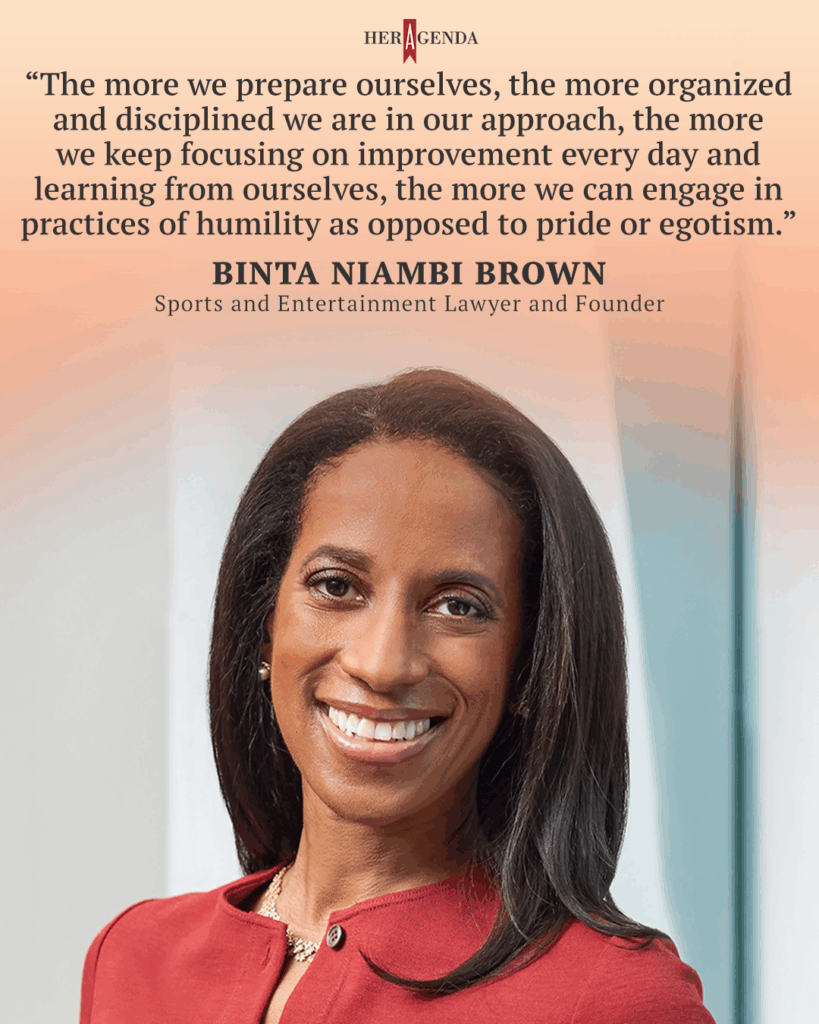
Her Agenda:Throughout your journey, you’ve negotiated and closed billions of dollars in transactions. What’s one decision-making principle you rely on in high-stakes situations that other women in leadership could adopt in their own careers?
Binta Niambi Brown: My one decision-making principle? I don’t know if I can distill that too easily. Whatever my one decision-making principle is, it’s a whether I’m aware of it or not, it’s a culmination of all of the data and experiences I’ve had at this point now over the course of my 30 years that enable me to make decisions quickly and confidently and to see, and to be able to see things ahead of me. I suppose one principle I try to adhere to is patience.

I try to be patient. I try to be thoughtful and to be considerate. I think the way my mind works [is] that I usually [am] pretty swiftly able to break down something that seems complex into constituent parts. The best way I can liken it is that if I’m driving, and if God forbid, suddenly an emergency is happening on the road in front of me, maybe cars are crashing or somebody is moving into my lane, like there are a bunch of very quick decisions that I make. I’ve been in this case a bunch of times where it’s sort of like I slow down time in order to guide the car and the people in the car to safety. But that’s a consequence of having a lot of experience with driving. And deal-making is the same way, where you have certain instincts, but you also have a will and an intellect that you’re adhering to. The more experience you have, the easier it is for you to break down things very quickly. I’m not calling myself humble because it’s the thing that I have struggled with most in my life and in my career is being rooted in a form of humility. But I am able to admit when I’m making a mistake or if I’m going too fast and pull back.
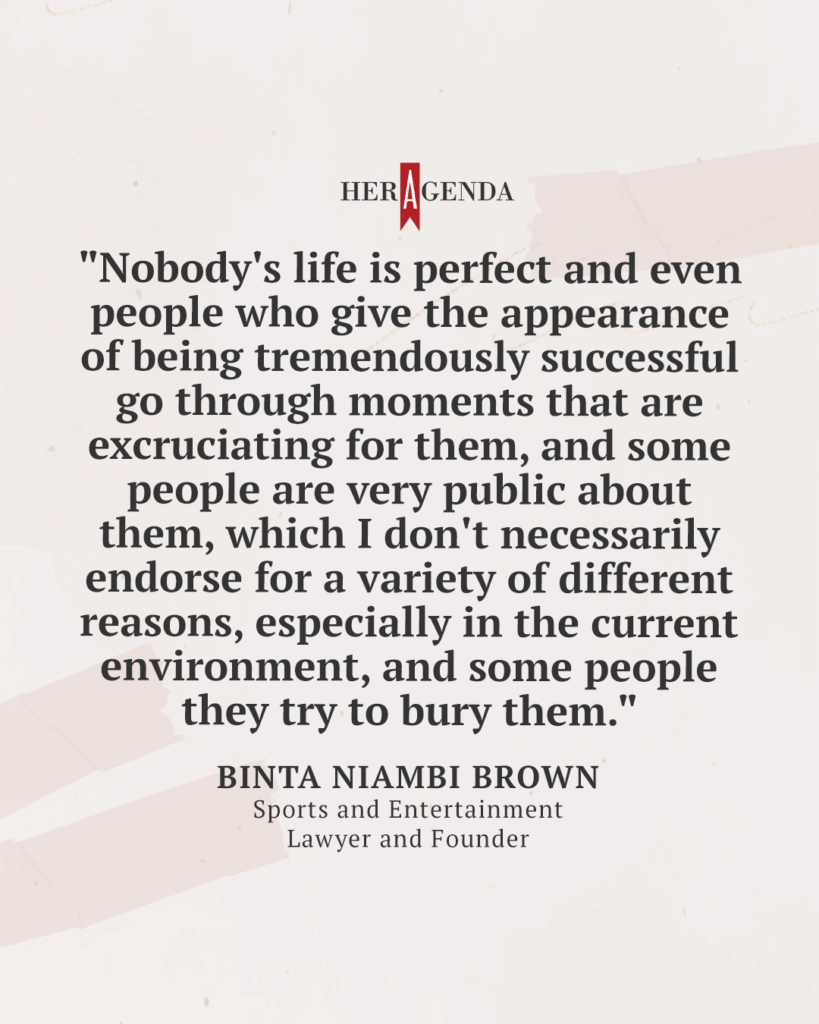
Sometimes I am guilty of impatience. I’m guilty of speaking over somebody or not hearing them correctly, or my mind is focused on something else. But when I’m locked in, I’m focused, my decision-making, my ability to guide my clients is really a function of a culmination of so many different experiences. The other strength that I have is that I have such a wide array of experiences and, or not even experiences, but a wide area of interest. I pursue my interests. I’m an incredibly curious person. I read constantly. I read every day. I try to read as many books as I possibly can. I read articles. I read about other people’s careers. I read scripture.

[Editor’s note: This interview has been edited for length and clarity.]

